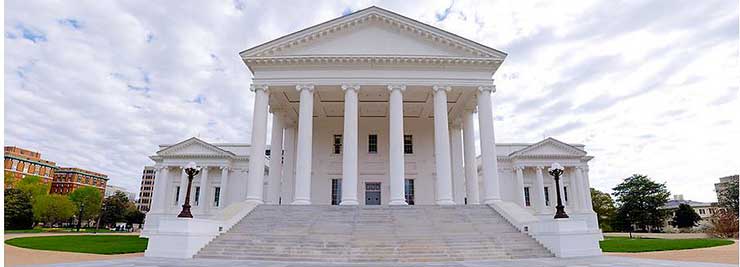The House and Senate returned to Richmond on Wednesday, April 15, 2015, for our annual “Reconvene Session” or “Veto Session.” This is typically a day-long event, as the General Assembly considers the Governor’s vetoes and any amendments he might want to make to various bills passed during the regular session. (Unlike Washington, D.C., the executive in Virginia has the ability to make changes in portions of specific legislation without vetoing an entire bill.)
The Governor proposed 17 vetoes on a wide variety of measures, and all of them were sustained by one or both chambers. To sustain a governor’s veto requires only that 33 percent of those voting to agree with the governor. If so, the veto stands and the bill does not become law. Among the vetoes that were sustained were several bills that would have made modification in legislative district lines, a bill that would infringe on the Board of Education’s authority to adopt curricula for public schools, a bill that would have prevented local governments from contracting with private business to require higher wages and benefits as a condition of doing business with that locality, several gun expansion bills, the so-called “Tebow bill” (providing special privileges for home schooled children to access public school sports and extracurricular activities), and a bill that would have required people who seek absentee ballots to provide photo identification in order to receive them. I voted to sustain every one of the Governor’s vetoes.
The Governor also proposed a number of line amendments to bills that were passed this past winter. Most of those changes were technical and drew no controversy. Several, however, were more substantive. Most notable of them involved the bill that would have prevented the use of certain surveillance equipment by law enforcement. This sparked a lively debate on the House floor and produced some strange bedfellows. The ACLU and the Tea Party argued that law enforcement should be able to use surveillance equipment only upon obtaining a warrant. Many of us were concerned, however, that such a position might make it more difficult for police to conduct investigations, or for dashboard cameras and body cameras to be used to protect citizens against overzealous police enforcement efforts. The bill began as an effort to prevent law enforcement agencies from keeping the data received from reading license plates for an indefinite period of time. It was transformed into a full-blown prohibition against the use of certain kinds of surveillance video. If you look at incidents like the Boston Marathon bombing, the recent South Carolina police shooting of an African-American male, and even the Hannah Graham case, you can see how important surveillance video and dashboard cameras can be in determining what happened in a specific incident. Fortunately, our arguments prevailed and the Governor’s amendments that permit continued use of these video surveillance techniques were passed; the bill now only applied to license plate readers. At the same time, the ability of law enforcement to keep data generated from license plate readers was limited to seven days, a time period which I believe is too short, but is certainly better than the indefinite period of time that they had been able to keep the data at present.
We had also thought that we would vote on a series of amendments to the ethics package that has been passed in the winter. At the last minute, however, concern developed that the bill’s provisions requiring a $100 gift ban were not written tightly enough. You may recall that the Governor issued an Executive Order when he came into office preventing the administration from accepting gifts in excess of $100 per year from lobbyists or anyone who did business with state government. The legislature did not accept this approach last year, but the Governor kept pushing, and we now have passed such a ban. This will still allow legislators to be taken to inexpensive lunches and receive gifts such coffee cups or an inexpensive bottle of wine as a token, but would prevent the kind of excesses and inappropriate gifts that we saw in the McDonnell case. It will also allow gifts to be received from friends. The gift ban almost fell apart at the last minute, as some suggested that the language was not tight enough. Given the desire to fix the bill, we had to use some procedural maneuvering that had not been used in over 20 years and required us to return to Richmond on Friday, April 17. We got what we wanted, that is, the $100 gift ban. Many of us hope and believe that this action will allow some restoration of the public trust that had been lost in the aftermath of the McDonnell trial.
With the legislative session now over, we return to our districts, constituent service and to our day jobs. It is an election year and many of us are readying ourselves for fall campaigns. I will announce my intentions soon.
If you want to hear more about the General Assembly session, or have issues you wish to discuss, Senator Deeds and I are holding two town hall meetings, one on this Tuesday, April 21, at 5:30 p.m. at PVCC, and the other on Tuesday, May 5, from 5:30-7:30 p.m. at the Northside Library. You can sign up to participate on Facebook or call our offices, 434-220-1660 or 434-296-5491.
Sincerely,



